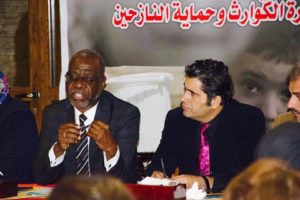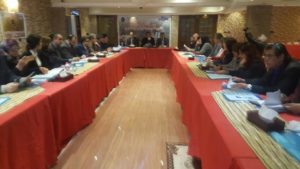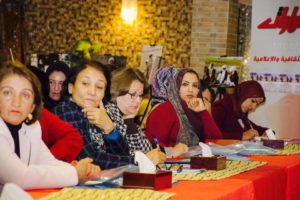In an expanded conference held by MASARAT Institution for Cultural and Media Development, some representatives of civil society, religious institutions and Iraqi Media, a fully integrated view of the IDPs situation in Iraq.
The conference witnessed four sessions which started with inaugurating a photo exhibit featuring some of the activities of MASARAT made in the past year, presented by Dr. Amina al-Dhahabi, Executive Manager and coordinator of MASARAT institution, then Mr. Saad Salloum, General Coordinator of MASARAT institution, moderated the legal session in which Mr. Sa’ib Khidir, Legal Committee Director of the project, presented a research paper on the justifications of legislating such a law. Afterwards, Mr. Sattar Norouz presented his presentation on the law.
Mr. Saad Salloum said that the cocluding conference of the Advocacy Campaign of Catastrophe Management IPDs Protection Law is in fact a collection of ideas, visions and plans for the next phase of the project so as to reach at a society which respects diversity and multiplicity, and protects the rights of IDPs.
Papers presented in the second session investigated the role of religious institutions to supply for the needs of IDPs. In this session, Mr. Salih al-Hakeem, Director of al-Hikma Center for Dialogue and Cooperation, and Father Ara Badlian, Chief of Anglican Baptist Church of Iraq, presented the role of the Islamic and Christian institutions in mitigating the severity of the crisis on Iraqi citizens, and how to confront such crisis in coordination with the government and the civil society.
The third session presented some testimonies from the Yazidi activist Sundus Salim, and the Shabaki Ali Mehdi, as well as the ISIL captivity survivor Ghada Zeki, a Christian woman. In these testimonies, they presented an image of their suffering in their displacement journey as they fled from the cities overtaken by ISIL. They highlighted the difficulties and suffering they confronted due to the absence of the official government in the management of the displacement process, and the lack of any official organizing process for that condition. Other civil activists presented three studies, in the fourth session, on the role of the civil society and the media messages and the social media in covering the needs of IDPs. It was opened by Miss Asmaa Ubaid who wrote about the role of youths’ initiatives in assisting the IDPs and roviding for their needs, and she presented in the abstract of her study figures and statistics which clarify the status of the IDPs and the official and non-official ways of dealing with the voluntary groups of youths who work for aiding the IDPs. Mr. Talib Nouruz, from Ufuk Organization, added in his study much about the role of civil society in aiding the IDPs and the obstacles of the absence of laws that regulate the Catastrophe management and IDP protection.
It is worth stating that MASARAT has already established a legal committee made of some specialist in drafting laws and legislations, and it worked for months on drafting a law bill which stipulates forming a Crisis Management Commission in Iraq. MASARAT Institution delivered a copy of this drat to the President of the Republic, Mr. Fouad Ma’soum, and another copy to the CoR, represented by the Human Right Committee of the Parliament Mr. Arshad al-Salihi.
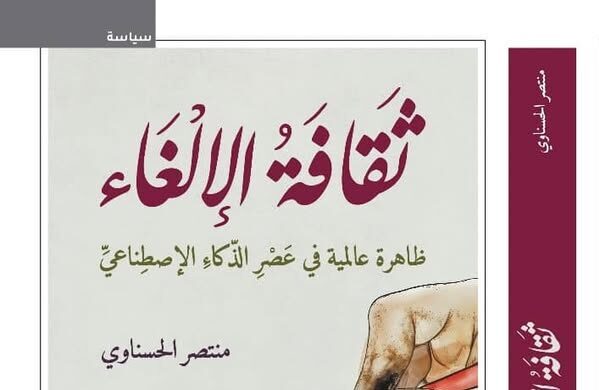
As part of the “Confronting Hate Speech” series, a new book by Dr. Muntaser Sabah Al-Hasnawi on “Cancel Culture” has been published by Masarat Foundation. Studying this new culture is part of the goal of the “Monitoring and Confronting Hate Speech Center” at Masarat Foundation, to shed light on a variety of issues related to […]
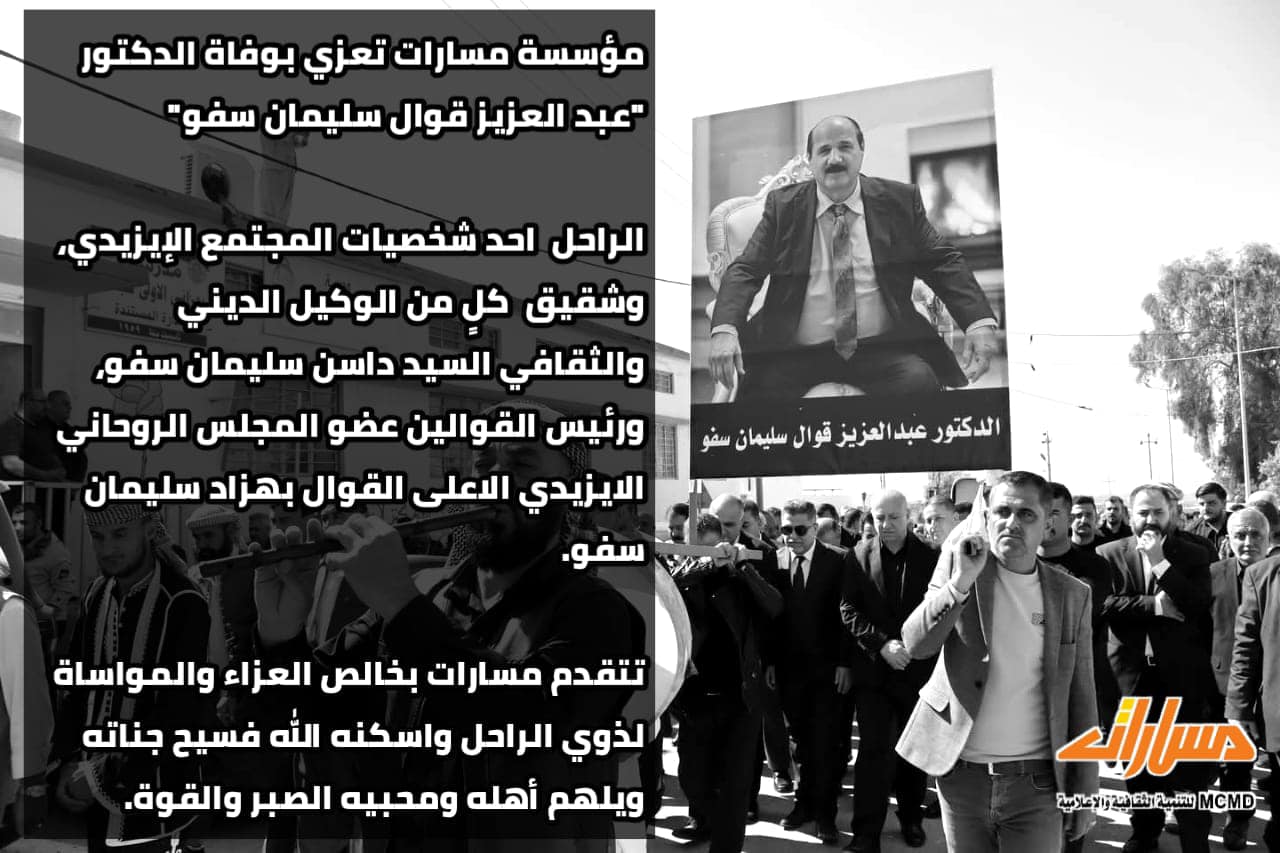
” The deceased was one of the prominent figures in the Yazidi community and the brother of both the religious and cultural representative Mr. Dasin Suleiman Sifo and the head of the Qawalin, member of the Supreme Yazidi Spiritual Council, Qawal Behzad Suleiman Sifo. Masarat extends its heartfelt condolences and sympathy to the family of […]
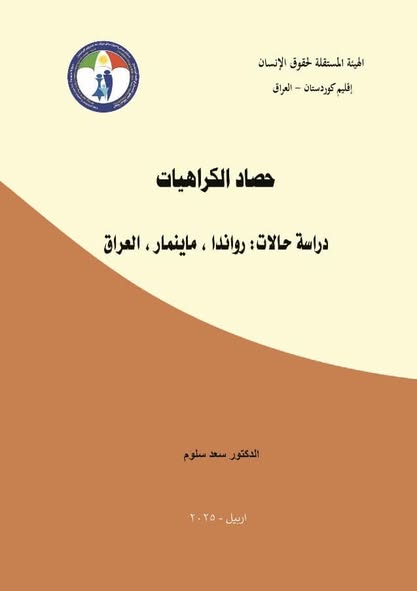
A new study authored by the general coordinator of Masarat Foundation has been published by the Independent Human Rights Commission in the Kurdistan Region of Iraq. The study, released in both Kurdish and Arabic, is titled “Harvesting Hatreds: Case Studies of Rwanda, Myanmar, and Iraq,” and analyzes the problematic relationship between the dissemination of hate […]
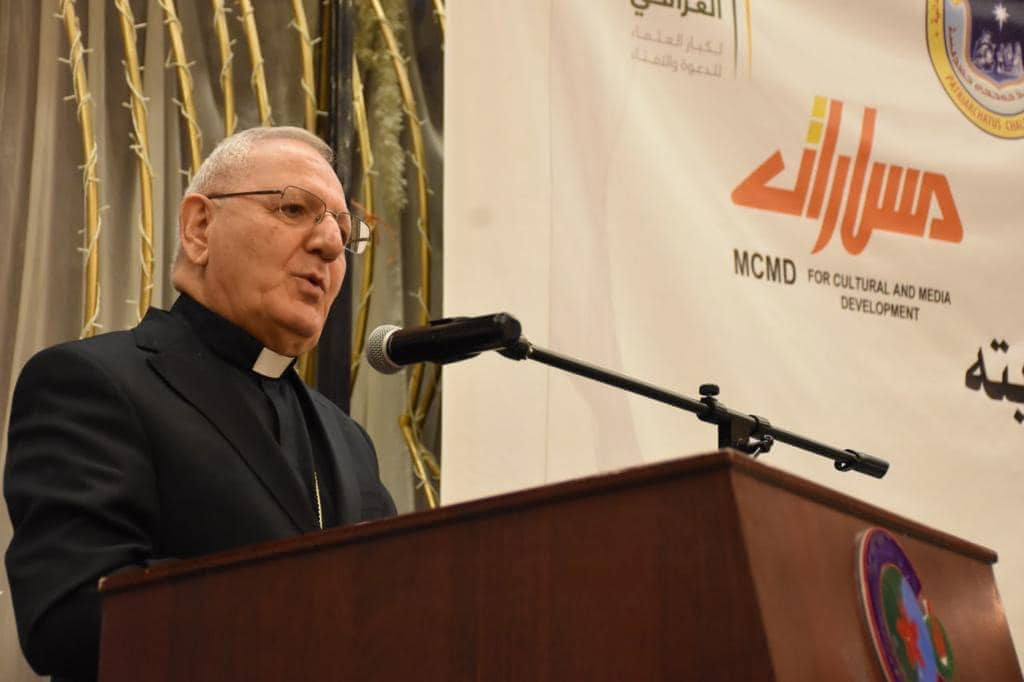
An article by Cardinal Sako, Patriarch of the Chaldean Church in Iraq and the world, titled: “Religion Does Not Cancel Identity,” praised the work of Masarat Foundation. In the article published on the Chaldean Patriarchate’s website, Sako pointed out that Iraq is multi-ethnic and multi-religious. This diversity can be managed wisely and not in a […]
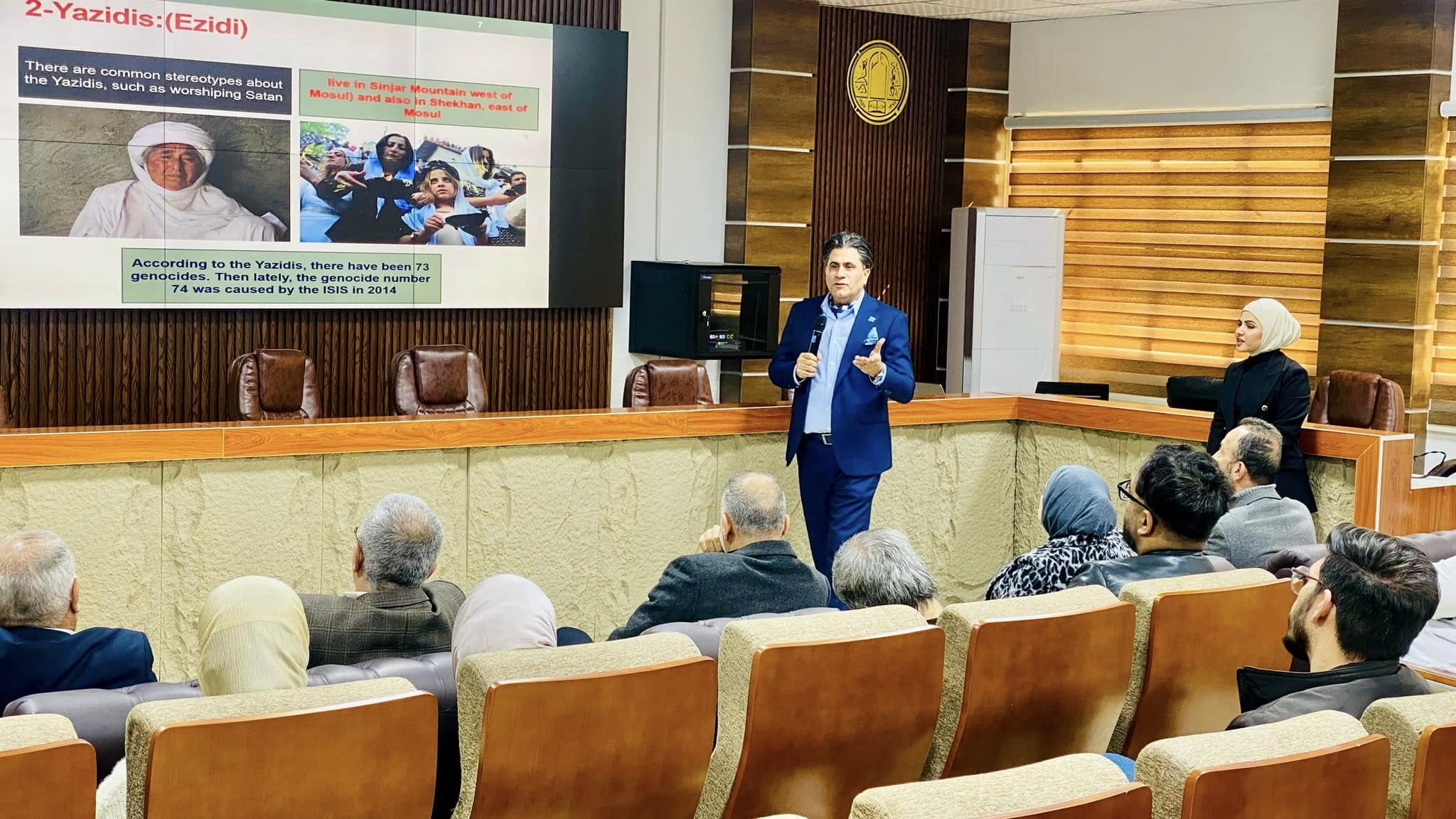
Dr. Saad Salloum, the general coordinator of Masarat Foundation, stated that religious and ethnic diversity is a source of strength and wealth, as well as a factor for unity in Iraq. This was mentioned in a lecture he delivered at the College of Medicine at the University of Baghdad, entitled “Managing Diversity and Challenges of […]
